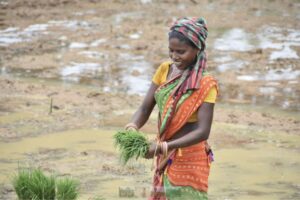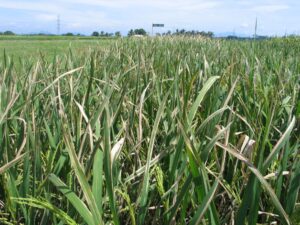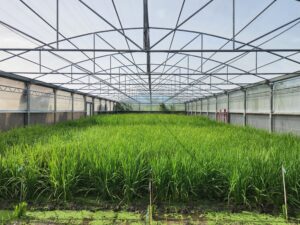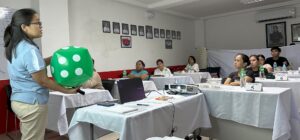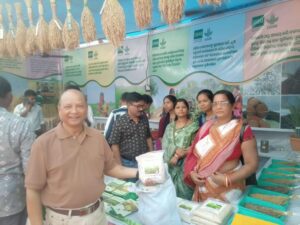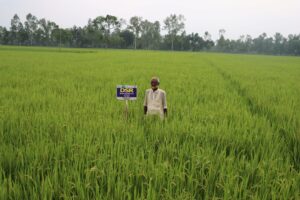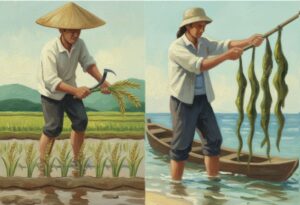
Hyderabad, India – On its golden jubilee, India’s Directorate of Rice Research (DRR) has been elevated to a national institute in recognition of its expanded role in research, partnerships, and technology delivery. The directorate is now the Indian Institute of Rice Research (IIRR) under the umbrella of the Indian Council of Agricultural Research (ICAR).
“Representing the International Rice Research Institute (IRRI), I’m delighted to be part the golden jubilee celebration—along with ICAR and the DRR, now the Indian Institute of Rice Research or IIRR,” said IRRI chief Robert Zeigler during the inaugural session of the 50th Annual Rice Research Group Meeting held in Hyderabad on 11-15 April 2015.
V. Ravindra Babu, IIRR director said that through continued collaboration between IIRR and IRRI, as equal partners, we will be able to meet India’s future challenges in rice production and productivity.
“It has been IRRI’s privilege to have worked, trained, and learned together with Indian scientists over these 50 years to help improve the lot of rice farmers and to help feed the world’s hungry,” said Zeigler.
Hundreds or rice scientists from all over India attended the meeting. The program included sessions on varietal improvement, crop production, and crop protection. On 15 April, a special, full-day session featured the decades-long ICAR-IRRI collaboration during which scientists shared updates on the latest advances in their respective areas, as well as broader ideas on potential next steps in country-level partnership. Special awards were given to some of the country’s best farmers and rice scientists.
In 1965, ICAR established the All India Coordinated Rice Improvement Project (AICRIP) in Hyderabad with a mandate to develop an integrated national network of cooperative experimentation on all aspects of rice production. As one of its key efforts, AICRIP accelerated breeding of the new semidwarf varieties, among other technologies, and helped launch the Green Revolution in India.
The Rockefeller Foundation, the U.S. Agency for International Development (USAID), and IRRI were soon associated with the project to enhance the pace of the rice research being undertaken by AICRIP.
As AICRIP evolved into a holistic system, it was elevated to directorate level (DRR) in 1975 until it became IIRR after 50 years of service. IIRR is empowered to maintain AICRIP to pursue its vision to look after the welfare of the present and future generations of Indian rice farmers and consumers by working towards food, nutrition, and livelihood security. Within this framework, the India-IRRI partnership has been a fruitful relationship with a record now spanning half a century.
Learn more about IRRI (www.irri.org) or follow us on the social media and networks (all links down the right column).

